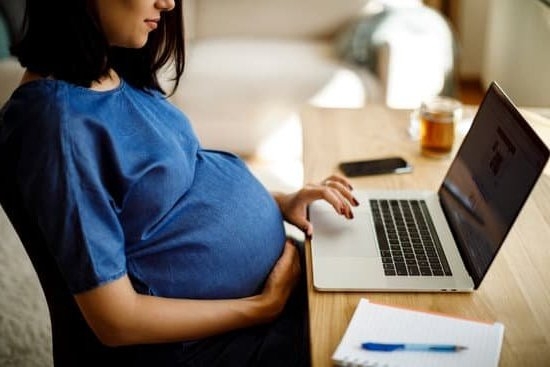Discovering whether you are expecting a child can be an exciting yet apprehensive time for many individuals. One burning question that often arises is, “How soon after conception can you take a pregnancy test?” The answer to this question lies in understanding the intricate process of conception and how pregnancy tests work.
Conception occurs when a sperm fertilizes an egg, leading to the formation of a zygote. This zygote eventually develops into an embryo and implants itself into the uterine wall. It is at this point that a pregnancy hormone called human chorionic gonadotropin (hCG) begins to be produced, which is what pregnancy tests detect.
Pregnancy tests work by detecting levels of hCG in urine or blood samples, indicating whether conception has occurred. However, it is essential to consider various factors, such as the sensitivity of the test and the timing of implantation, when determining when to take a pregnancy test for accurate results. By paying attention to early signs of pregnancy and knowing the typical timeline for taking a test after conception, individuals can better navigate this crucial moment in their lives.
Understanding the Process of Conception
Conception is the process by which a sperm cell fertilizes an egg, resulting in the formation of an embryo that will eventually develop into a fetus. This typically occurs during ovulation when a mature egg is released from the ovary and travels through the fallopian tube, where it can be fertilized by sperm. Once fertilization takes place, the newly formed embryo implants itself in the lining of the uterus, marking the beginning of pregnancy.
During conception, genetic material from both the sperm and egg combine to form a unique set of chromosomes that will determine the physical characteristics and gender of the baby. It’s important to note that conception does not happen immediately after intercourse; it may take up to several days for the sperm to reach and fertilize the egg after sexual intercourse.
After conception occurs, it takes some time for the levels of human chorionic gonadotropin (hCG), a hormone produced by the placenta following implantation, to be detectable in urine or blood. This hormone is what most pregnancy tests detect in order to indicate whether someone is pregnant or not. Depending on the sensitivity of the pregnancy test being used, hCG levels need to be at a certain concentration for accurate results.
How Pregnancy Tests Work
Pregnancy tests are a common way for individuals to determine if they are expecting a child. These tests work by detecting the presence of a hormone called human chorionic gonadotropin (hCG) in urine or blood. This hormone is produced by the cells that will eventually form the placenta after a fertilized egg attaches to the uterus lining.
Understanding How Pregnancy Tests Work
- At-home pregnancy tests: These tests typically involve placing a few drops of urine on a test strip or dipping the strip into a container of urine. The test strip contains antibodies that react with hCG if it is present, producing a color change indicating a positive result.
- Blood tests: A blood test can detect hCG earlier than a urine test, as the concentration of this hormone is higher in the blood sooner after conception. Blood tests can also measure the exact level of hCG present, providing more information about the pregnancy’s progression.
How Soon After Conception Can You Take a Pregnancy Test?
Determining when to take a pregnancy test after conception depends on various factors, including the sensitivity of the test you are using and your individual hCG levels. In general, most at-home pregnancy tests can provide accurate results around 7-10 days after conception.
However, some more sensitive tests may be able to detect hCG as early as 6 days before your missed period. It’s essential to follow the instructions provided with your chosen test for the most reliable results.
Factors to Consider When Determining When to Take a Pregnancy Test
When trying to determine when to take a pregnancy test after conception, there are several factors to consider. One of the most important factors is the sensitivity of the pregnancy test you are using. Some tests can detect pregnancy hormones in your urine earlier than others, so it is essential to choose a test that can provide accurate results sooner.
Menstrual Cycle Regularity
Another factor to consider is the regularity of your menstrual cycle. If you have irregular periods, it may be more challenging to pinpoint the exact timing of conception and when to take a pregnancy test. In this case, consulting with a healthcare provider may be beneficial to get a clearer understanding of when to test for pregnancy.
Possible Conception Date
Understanding when you may have conceived can also help determine the best time to take a pregnancy test. If you have been actively trying to conceive and know the approximate date of ovulation, you can calculate when it would be appropriate to take a test. However, if conception was unplanned or unclear, waiting until after a missed period can provide more accurate results.
Overall, considering these factors along with the typical timeline for taking a pregnancy test after conception can help increase the chances of getting an accurate result. It is always recommended to follow the instructions on the pregnancy test package carefully and consult with a healthcare provider if there are any doubts about when to take the test.
The Early Signs of Pregnancy to Look Out For
When it comes to determining if you might be pregnant, paying attention to the early signs of pregnancy can be crucial. While these symptoms may vary from woman to woman, there are some common indicators to look out for.
One of the most tell-tale signs is a missed period, which can often prompt individuals to consider taking a pregnancy test. However, other early signs include fatigue, breast tenderness, nausea or vomiting (also known as morning sickness), frequent urination, and mood swings.
Implantation Bleeding
One lesser-known early sign of pregnancy is implantation bleeding. This occurs when the fertilized egg attaches itself to the lining of the uterus, causing some light spotting or bleeding. Implantation bleeding typically occurs around 6-12 days after conception and may be mistaken for a light period by some individuals. If you experience any abnormal vaginal bleeding outside of your usual menstrual cycle, it might be worth considering taking a pregnancy test.
Changes in Appetite and Sense of Smell
Many women also report changes in their appetite and sense of smell as early signs of pregnancy. You may find yourself suddenly craving certain foods or unable to tolerate smells that never bothered you before. These subtle changes could be an indication that your body is adjusting to the hormonal shifts associated with pregnancy. If you notice significant changes in your eating habits or sense of smell along with other symptoms, it may be time to take a pregnancy test.
Increased Basal Body Temperature
Tracking your basal body temperature (BBT) can also provide clues about potential pregnancy. Shortly after ovulation, your BBT will rise slightly and remain elevated if fertilization has occurred. While this method requires consistent monitoring and charting over several cycles to establish a pattern, a sustained increase in BBT beyond your typical post-ovulation temperatures could indicate that you have conceived. However, it’s important to note that not all women experience noticeable changes in their BBT during early pregnancy.
The Typical Timeline for Taking a Pregnancy Test After Conception
After conception, many women are eager to find out if they are pregnant as soon as possible. The typical timeline for taking a pregnancy test after conception is around 7-10 days. During this time, the fertilized egg implants itself into the uterus, and the body starts producing the hormone hCG (human chorionic gonadotropin), which is what pregnancy tests detect. Taking a test too early may result in a false negative due to low levels of hCG in the body.
It’s important to remember that every woman’s body is different, and hCG levels can vary from person to person after conception. Some women may have higher levels of hCG earlier on, while others may take longer to build up detectable levels. Factors such as the timing of ovulation, implantation, and individual hormone levels can all affect when hCG is produced in high enough concentrations to be picked up by a pregnancy test.
If you suspect you may be pregnant, it’s best to wait until at least the first day of your missed period to take a pregnancy test for more accurate results. However, some early response pregnancy tests claim they can detect hCG before your missed period, but results may still vary depending on different factors mentioned earlier. Always read and follow the instructions provided with the pregnancy test kit for the most accurate results.
| Typical Timeline | Significance |
|---|---|
| Around 7-10 days after conception | Implantation occurs and hCG production begins |
| Day before or day of missed period | Recommended time for most accurate results |
Different Types of Pregnancy Tests Available
When it comes to taking a pregnancy test, there are several options available on the market. The two main types of pregnancy tests are urine tests and blood tests. Urine tests are the most commonly used and can be easily done at home.
These tests detect the presence of the hormone hCG (human chorionic gonadotropin) in your urine, which is produced during pregnancy. On the other hand, blood tests can either be qualitative (detecting if hCG is present) or quantitative (measuring the exact amount of hCG present), and are usually conducted at a healthcare provider’s office.
In addition to urine and blood tests, there are also different formats of pregnancy tests to choose from. Traditional pregnancy test kits use midstream urine samples on a stick or strip that changes color to indicate a positive result.
Digital pregnancy tests provide a clear “pregnant” or “not pregnant” result on a digital display screen, which eliminates any potential confusion with line-based results. Some newer tests even offer early detection capabilities, allowing you to test for pregnancy earlier than traditional methods.
The type of pregnancy test you choose may depend on various factors such as cost, convenience, accuracy, and sensitivity levels. It is important to read the instructions carefully before taking the test to ensure accurate results. Ultimately, the goal is to choose a test that best suits your needs and preferences when determining how soon after conception you can take a pregnancy test.
Tips for Accurate Pregnancy Testing
Pregnancy testing can be an exciting yet nerve-wracking experience for many women. It is essential to understand the tips and tricks for accurate results when deciding on taking a pregnancy test. One of the most common questions that women have is, “how soon after conception can you take a pregnancy test?” The answer to this question largely depends on the type of pregnancy test being used and the sensitivity of the test.
In general, most home pregnancy tests claim to provide accurate results as early as a few days before your expected period. However, it is important to note that the accuracy of these tests can vary depending on individual hormone levels and the timing of implantation. For the most reliable results, it is recommended to wait until at least one week after a missed period to take a pregnancy test.
When determining when to take a pregnancy test, it is also crucial to consider factors such as the length of your menstrual cycle and the regularity of your periods. Every woman’s body is different, so it is best to consult with your healthcare provider if you have any concerns or questions about when to take a pregnancy test.
Additionally, following the instructions provided with the specific pregnancy test you choose can help ensure accurate results and avoid any confusion in interpreting the outcome.
| Fact | Detail |
|---|---|
| Timing of Test | Wait at least one week after a missed period for reliable results. |
| Consultation | Consider consulting with healthcare provider for guidance. |
| Follow Instructions | Adhere strictly to the instructions provided with the pregnancy test kit. |
Conclusion and Final Thoughts on Timing of Pregnancy Testing
In conclusion, the timing of when to take a pregnancy test after conception is crucial in obtaining accurate results. Understanding the process of conception and how pregnancy tests work can help determine the best time to take the test. Factors such as the sensitivity of the test, the length of your menstrual cycle, and the presence of early pregnancy symptoms should be considered when deciding when to take a pregnancy test.
It is recommended to wait until after you have missed your period to take a pregnancy test for more reliable results. However, some tests claim to provide accurate results even before your missed period. Keep in mind that testing too early may result in a false negative, leading to unnecessary stress and confusion. It is always best to follow the instructions provided with the pregnancy test kit for optimal accuracy.
Ultimately, every woman’s body is unique, and each pregnancy journey is different. Pay attention to any changes in your body and be mindful of potential early signs of pregnancy. Consult with a healthcare provider if you have any concerns or questions about taking a pregnancy test. Remember that patience is key when it comes to accurately determining whether you are pregnant or not after conception.
Frequently Asked Questions
How Long After Conception Can You Test Positive for Pregnancy?
The time it takes to test positive for pregnancy after conception can vary from woman to woman. Generally, it takes about 6-12 days for the fertilized egg to implant in the uterus and for hCG levels to rise enough to be detected by a pregnancy test.
How Long Does It Take for hCG to Show Up in Urine?
It typically takes about 7-10 days after conception for hCG (human chorionic gonadotropin) to show up in urine. This hormone is produced by the cells surrounding a developing embryo and is what pregnancy tests detect to indicate that you are pregnant.
Can I Take a Pregnancy Test After 5 Days?
Taking a pregnancy test just 5 days after possible conception may not yield accurate results since it is still too early for hCG levels to be detectable in urine at this point. It’s best to wait until closer to when your next period is due for a more reliable result.

Welcome to my fertility blog. This is a space where I will be sharing my experiences as I navigate through the world of fertility treatments, as well as provide information and resources about fertility and pregnancy.





